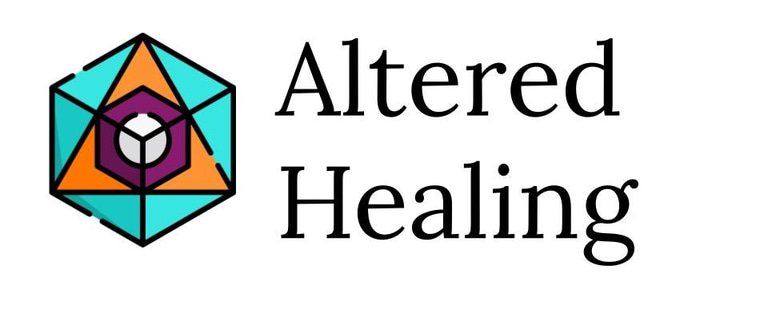Menopause: A Natural Life Stage, Not an Illness
Explore some of the symptoms of menopause and how to find relief
6/3/20244 min read
I've had the privilege of guiding countless individuals through various life stages, each presenting its own set of challenges and opportunities. One stage that often comes with its share of misconceptions and challenges is menopause. Menopause is a natural and inevitable part of a woman's life, marking the end of her reproductive years. It is crucial to understand that menopause is not an illness, but rather a unique life stage that every woman will experience. In this blog post, I aim to shed light on this important life stage, explore some common experiences tied to menopause, and provide techniques for finding relief when feeling overwhelmed.
Menopause is accompanied by a range of physical and emotional changes due to the decline in estrogen and progesterone levels. These hormonal shifts can lead to various symptoms. While these symptoms can be challenging to navigate, it's important to remember that menopause is a natural transition, not a disease. Menopause typically occurs in women between the ages of 45 and 55, although the exact timing can vary. While menopause is a natural biological process, it can bring about a wide range of physical and emotional symptoms, including:
Hot Flashes and Night Sweats: Sudden feelings of intense heat, often accompanied by sweating, are a hallmark symptom of menopause. These can be disruptive to sleep and daily activities.
Mood Swings and Emotional Changes: Fluctuations in hormone levels can lead to mood swings, irritability, and feelings of sadness or anxiety.
Sleep Disturbances: Many women experience disruptions in their sleep patterns during menopause, which can further exacerbate mood swings and fatigue.
Changes in Libido: Shifts in hormone levels may also affect a woman's interest in sexual activity and her physical response to stimulation.
Physical Symptoms: Other physical symptoms such as vaginal dryness, joint pain, and weight gain are also commonly reported during menopause.
Research has shown that women experience menopause differently, both in terms of the intensity and duration of symptoms. Some women may go through menopause with minimal disruption to their daily lives, while others may experience more severe symptoms that require additional support. It's crucial to recognize that each woman's experience is unique and valid. If you're feeling curious about your own symptoms here is a quiz to help answer if what you're experiencing could be related to menopause.
Techniques for Finding Relief:
While menopause is a normal life stage, it doesn't mean that women have to suffer through its symptoms. While menopause can be challenging, there are several techniques that women can employ to find relief and navigate this life stage with greater ease:
Healthy Lifestyle: Adopting a healthy lifestyle can significantly alleviate menopausal symptoms. Regular exercise, a balanced diet rich in fruits, vegetables, and whole grains, and adequate sleep can help manage symptoms such as hot flashes and mood swings.
Stress Management: Menopause can be a time of increased stress and emotional vulnerability. Engaging in stress-reducing activities such as yoga, meditation, deep breathing exercises, or practicing mindfulness can help women cope with overwhelming emotions and promote a sense of calmness.
Supportive Relationships: Surrounding oneself with a strong support network can make a significant difference during menopause. Sharing experiences and concerns with trusted friends, family members, or joining support groups can provide a sense of understanding and validation.
Alternative Therapies: Some women find relief through alternative therapies such as acupuncture, herbal supplements, or bio-identical hormone therapy. It's essential to consult with healthcare professionals before considering any alternative treatments to ensure their safety and effectiveness.
Open Communication: Menopause is often accompanied by changes in sexual desire and function. Open and honest communication with partners about these changes can help maintain intimacy and foster understanding.
Mindfulness and Meditation: Practicing mindfulness and meditation can help women manage stress, reduce anxiety, and promote emotional well-being during menopause. Even just a few minutes of deep breathing or guided meditation each day can make a significant difference.
Regular Exercise: Engaging in regular physical activity can help alleviate many of the symptoms associated with menopause, including hot flashes, mood swings, and sleep disturbances. Aim for a combination of cardiovascular exercise, strength training, and flexibility exercises for maximum benefits.
Healthy Diet: Adopting a balanced diet rich in fruits, vegetables, whole grains, and lean proteins can support overall health and well-being during menopause. Paying attention to hydration and limiting caffeine and alcohol intake can also help manage symptoms.
Seeking Support: Don't hesitate to reach out to friends, family members, or a trusted therapist for support during this time of transition. Sharing experiences and seeking guidance from others who have gone through or are going through menopause can be incredibly validating and empowering.
Consider Hormone Therapy: In some cases, hormone therapy may be recommended to alleviate severe symptoms of menopause. It's essential to discuss the potential risks and benefits with a healthcare provider to determine if this option is right for you.
It is crucial to remember that menopause is not a one-size-fits-all experience. What works for one woman may not work for another. It's essential for women to explore different strategies and techniques to find what brings them relief and comfort during this transformative phase of life. It's also important to make sure you're informed. Here are two different podcasts that can help give you up date information about menopause:
Dr. Mary Claire Haver on the Mel Robbins Podcast
Avrum Bluming M.D. and Carol Tavris Ph. D on The Drive with Peter Attia
In conclusion, menopause is a natural and inevitable transition in a woman's life, not an illness to be feared or avoided. Together, we can explore coping mechanisms tailored to individual needs and empower women to embrace menopause as a natural life stage. By understanding the physical and emotional changes associated with menopause and employing effective coping strategies, women can navigate this life stage with grace and resilience.
Remember, you are not alone on this journey, and support is available to help you thrive during this transformative time.




Contact
info@alteredhealing.com
902 333 7000
Halifax (Kjipuktuk), Nova Scotia (Sipekne'katik), Canada
